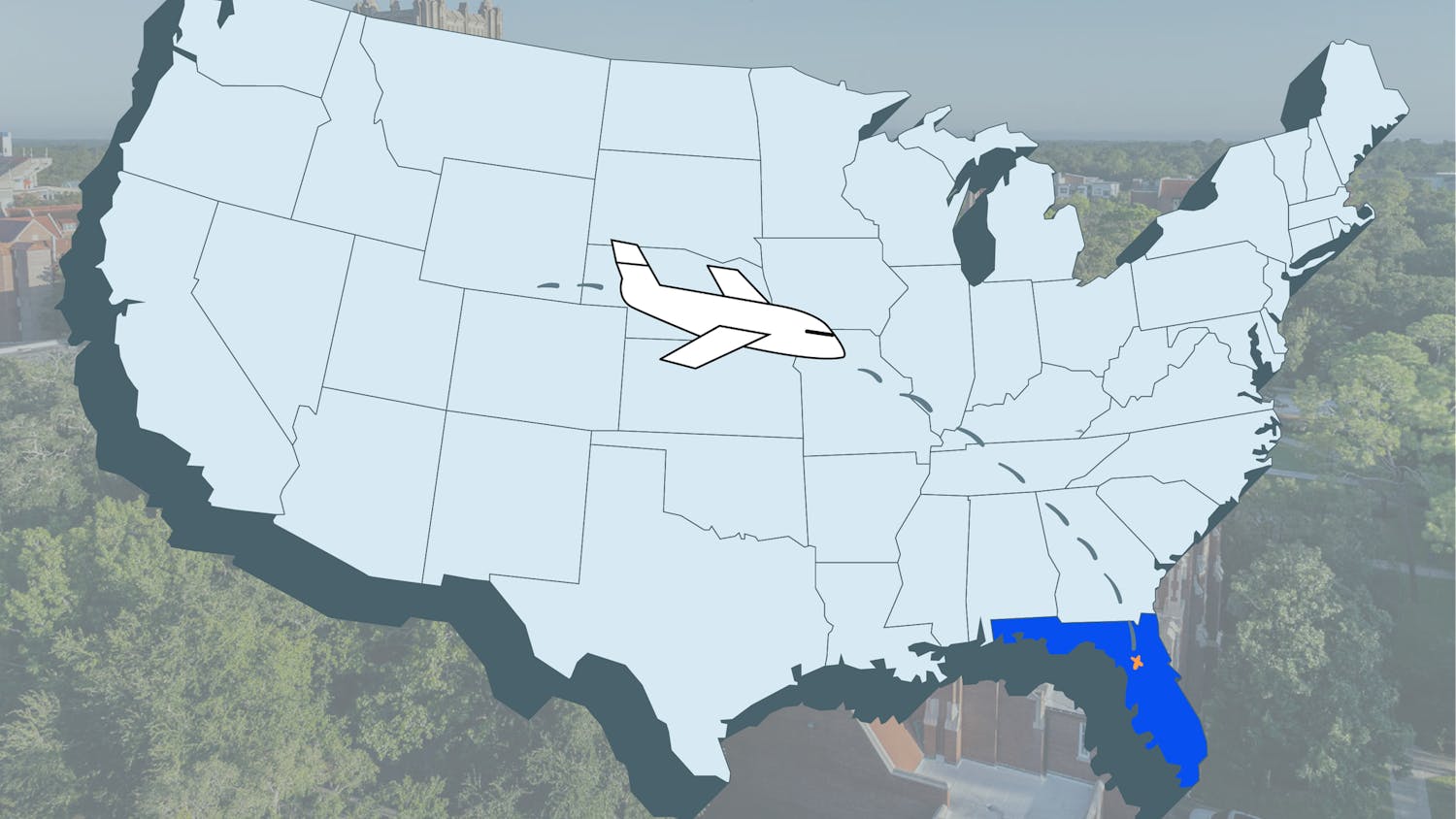Between stern talks, moments of relief and poking fun at Gov. Rick Scott, the Graduate Assistants United labor union and a UF bargaining team made progress on their monthslong negotiations in recent meetings.
Chief among them was adding gender identity to the contract’s list of protected statuses against workplace discrimination June 15, said Charles Shields, GAU’s communications chair.
“It was not mentioned at all in the original (contract),” Shields said. “Now it’s in there. Now it’s a protected class.”
Shields, 30, said gender identity workplace protections were in place before through UF’s Human Resources Employee Handbook.
However, they were not held in a binding contract for graduate assistants — UF’s nearly 4,000 graduate-student employees including research assistants and teaching assistants.
“Those policies can change, and they’re not necessarily governed by a contract.” Shields said, referring to the handbook’s policies. “This just strengthens that protection by getting this in the contract.”
GAU’s 11 members and UF’s four representatives — UF’s chief bargainer, Bill Connellan; the senior associate dean of the Graduate School, Paul Duncan; the employee relations director, Brook Mercier; and assistant Kim Bagley — also discussed health care, intellectual property and briefly touched on stipend complications during their nearly two-hour long negotiations.
GAU Bargaining Chair Bobby Mermer urged for an agreement on financing Summer health insurance for graduate assistants who graduate in Spring.
“The problem is that people transitioning from being graduate assistants into faculty or into other jobs — that usually doesn’t happen (instantly),” Mermer told the four administrators during the June 15 meeting. “We don’t want a gap in coverage.”
Connellan responded by saying the health insurance move would cost UF, and they’d have to discuss it further in future meetings.
Both GAU and UF also hoped to reach an agreement on stipend increases June 15, the most controversial issue left, Shields said.
The minimum stipend is an annual $15,000 salary for a graduate assistant working 20 hours a week. However, Shields said many live in “what is essentially poverty” because they work closer to 10 hours a week, making their annual stipend about $7,500.
At the meeting, Connellan told Mermer and the other 10 GAU representatives that negotiations on stipends would have to be put on hold because of actions in Tallahassee.
“The Governor in his infinite wisdom yesterday vetoed the higher ed bill,” Connellan said sarcastically. “We’re trying to understand what implications this has for us.”
On June 14, Scott vetoed higher education bill SB 374, which outlined permanent boosts to the Bright Futures program. Scott said he felt the bill would “impede” progress at Florida’s 28 community colleges at the expense of universities, according to the Orlando Sentinel.
Connellan told GAU he’d need to wait to figure out whether Scott’s veto would have an effect on the amount of money UF is able to offer graduate assistants.
“We don’t know how it affects us,” he said. “People are working on it right now to figure out what it is.”
Shields wrote in an email that Connellan and UF are finalizing their estimates on how Scott’s veto might affect UF’s budget, and that GAU expects a counter proposal on the stipends by today.
For GAU members Alec Dinnin and John Hames, the stipend issue is vital.
“At the end of the day, it’s about putting food on the table,” said Dinnin, a 28-year-old UF political science doctoral candidate and former GAU co-president. “We don’t make a lot of money — at least most of us don’t — so the raises that we’re able to agree to are going to probably be the most significant thing to come.”
Hames, a 35-year-old former GAU chief negotiator, said the stipend issue comes down to fairness for graduate students.
“We do a significant amount of the work and the research and teaching that makes this university what it is,” said Hames, who will graduate in August with a doctoral degree in anthropology.
Hames said since 2014, the across-the-board stipend raise packages from UF have steadily declined. He said when you look comprehensively at the fees, low stipends and rising costs of health care in certain areas, it becomes clear the fee issue has not been addressed in a fundamental way.
“President Fuchs is partly evaluated based on how successful he is at raising stipends for graduate assistants,” he said. “If you look at the record over the last couple of years, it’s mixed at best.”
The current contract between GAU and UF expires June 30, and they have until then or early July to finish negotiations, according to Alligator archives.
As of Monday, they’ve reached tentative agreements on 20 of the contract’s articles, leaving only three more that need to be negotiated, Shields said. Once they’ve reached agreements on all 26 articles, GAU will host a referendum for graduate assistants to vote and approve the new GAU-UF contract, which will last through July 2020.
“We’re going to fight for a good stipend raise,” Hames said. “The university really needs to step up.”





